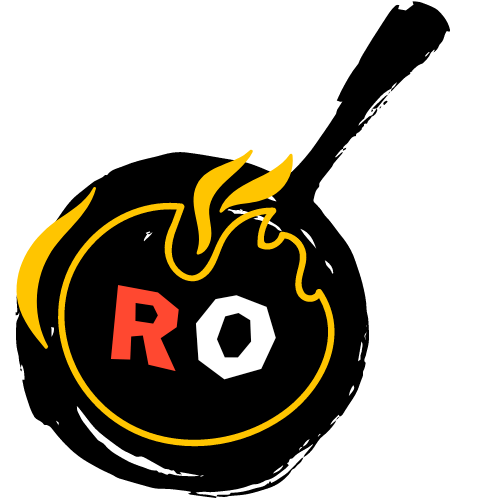In the competitive world of the restaurant industry, growth is not a matter of chance but a result of strategic planning and execution. This blog post will delve into the realm of restaurant marketing strategies that can propel your business towards growth and success. We will explore innovative tactics, proven methods, and fresh perspectives to help you stand out in the crowded marketplace.
Understanding Your Target Market
The first step in any marketing strategy is understanding your target market. This involves identifying who your customers are, what they want, and how you can meet their needs.
Market research is a powerful tool in this process. It can provide valuable insights into consumer behavior, preferences, and trends. You can conduct surveys, focus groups, or interviews to gather this information.
Once you have a clear understanding of your target market, you can tailor your marketing strategies to appeal to them. This could involve creating special promotions, offering unique menu items, or designing your restaurant's ambiance to match their preferences.
Remember, a one-size-fits-all approach rarely works in marketing. Each segment of your target market may require a different strategy. Therefore, it's crucial to segment your market and develop tailored strategies for each group.
Leveraging Social Media
Social media has become an indispensable tool for restaurant marketing. It provides a platform to engage with customers, showcase your offerings, and build your brand.
Platforms like Instagram, with its focus on visuals, are perfect for showcasing your mouth-watering dishes. You can also use Facebook to share updates, promotions, and events. Twitter, on the other hand, is great for engaging in conversations with your customers and addressing their queries or concerns.
In addition to regular posts, consider using paid advertisements on these platforms. They can help you reach a larger audience and attract more customers to your restaurant.
However, remember that social media marketing is not just about posting content. It's also about engaging with your audience. Respond to comments, share user-generated content, and create interactive content like polls or quizzes to keep your audience engaged and interested.
Building a Strong Online Presence
In today's digital age, having a strong online presence is crucial for any business, and restaurants are no exception. This involves having a well-designed website, being present on online review sites, and optimizing for search engines.
Your website is often the first point of contact between your restaurant and potential customers. Therefore, it should be visually appealing, easy to navigate, and up-to-date with all the necessary information like your menu, location, contact details, and hours of operation.
Online reviews can significantly influence a customer's decision to visit your restaurant. Therefore, it's essential to be present on review sites like Yelp and TripAdvisor. Encourage your customers to leave reviews and always respond to them, whether they are positive or negative.
Search engine optimization (SEO) is another crucial aspect of building an online presence. It involves optimizing your website and online content to rank higher in search engine results, thereby increasing your visibility and attracting more customers.
Creating a Unique Brand Identity
Your brand identity is what sets you apart from your competitors. It's what makes you unique and memorable in the minds of your customers.
Your brand identity should be reflected in everything you do, from your menu and interior design to your marketing materials and customer service. It should convey your restaurant's personality, values, and the experience customers can expect when they dine with you.
Creating a strong brand identity requires a clear understanding of your restaurant's mission and values. It also requires consistency. Every aspect of your restaurant should align with your brand identity, creating a cohesive and memorable experience for your customers.
Implementing a Loyalty Program
Loyalty programs are a proven strategy for increasing customer retention and driving growth. They incentivize repeat visits, encourage larger purchases, and can even turn your customers into brand ambassadors.
There are various types of loyalty programs you can implement, from points-based systems and tiered rewards to referral programs. The key is to make your program attractive to your customers and easy to use.
Remember, a loyalty program is not just about rewarding purchases. It's also about building relationships with your customers. Therefore, it's important to personalize your program as much as possible. This could involve offering rewards based on individual customer preferences or sending personalized offers on special occasions like birthdays or anniversaries.
Harnessing the Power of Email Marketing
Despite the rise of social media, email marketing remains one of the most effective marketing strategies for restaurants. It allows you to reach your customers directly, share personalized offers, and build long-term relationships.
To leverage email marketing, you first need to build an email list. You can do this by offering a sign-up incentive, like a discount on the first order, or by collecting emails through your loyalty program.
Once you have an email list, you can start sending regular newsletters, updates, and promotional offers. However, it's important to segment your list and personalize your emails as much as possible. This can significantly increase your open and click-through rates, leading to more conversions and sales.
Wrapping Up: Strategies for Restaurant Marketing
In conclusion, restaurant marketing is a multifaceted endeavor that requires a deep understanding of your target market, a strong online presence, a unique brand identity, a compelling loyalty program, and effective use of email marketing. By implementing these strategies, you can drive growth and success for your restaurant in the competitive food industry. Remember, the key to successful marketing lies in continuous learning, experimentation, and adaptation. So, keep exploring, keep innovating, and keep growing.

